Sawinder Kaur
Syracuse University, USA
CRoP: Context-wise Robust Static Human-Sensing Personalization
Sep 26, 2024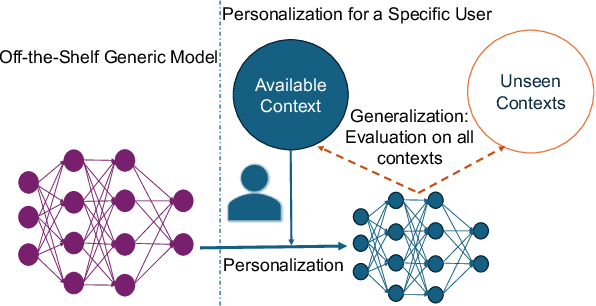

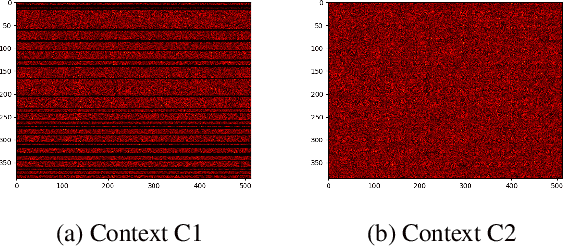

Abstract:The advancement in deep learning and internet-of-things have led to diverse human sensing applications. However, distinct patterns in human sensing, influenced by various factors or contexts, challenge generic neural network model's performance due to natural distribution shifts. To address this, personalization tailors models to individual users. Yet most personalization studies overlook intra-user heterogeneity across contexts in sensory data, limiting intra-user generalizability. This limitation is especially critical in clinical applications, where limited data availability hampers both generalizability and personalization. Notably, intra-user sensing attributes are expected to change due to external factors such as treatment progression, further complicating the challenges.This work introduces CRoP, a novel static personalization approach using an off-the-shelf pre-trained model and pruning to optimize personalization and generalization. CRoP shows superior personalization effectiveness and intra-user robustness across four human-sensing datasets, including two from real-world health domains, highlighting its practical and social impact. Additionally, to support CRoP's generalization ability and design choices, we provide empirical justification through gradient inner product analysis, ablation studies, and comparisons against state-of-the-art baselines.
SparseVLR: A Novel Framework for Verified Locally Robust Sparse Neural Networks Search
Dec 02, 2022Abstract:The compute-intensive nature of neural networks (NNs) limits their deployment in resource-constrained environments such as cell phones, drones, autonomous robots, etc. Hence, developing robust sparse models fit for safety-critical applications has been an issue of longstanding interest. Though adversarial training with model sparsification has been combined to attain the goal, conventional adversarial training approaches provide no formal guarantee that the models would be robust against any rogue samples in a restricted space around a benign sample. Recently proposed verified local robustness techniques provide such a guarantee. This is the first paper that combines the ideas from verified local robustness and dynamic sparse training to develop `SparseVLR'-- a novel framework to search verified locally robust sparse networks. Obtained sparse models exhibit accuracy and robustness comparable to their dense counterparts at sparsity as high as 99%. Furthermore, unlike most conventional sparsification techniques, SparseVLR does not require a pre-trained dense model, reducing the training time by 50%. We exhaustively investigated SparseVLR's efficacy and generalizability by evaluating various benchmark and application-specific datasets across several models.
Deadwooding: Robust Global Pruning for Deep Neural Networks
Feb 17, 2022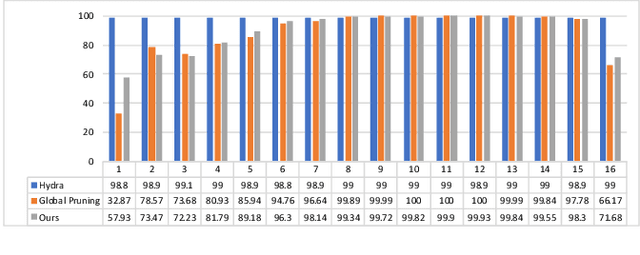
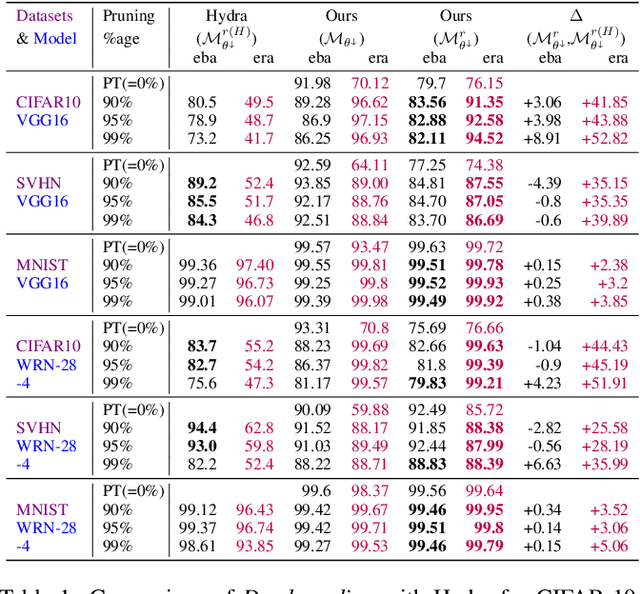

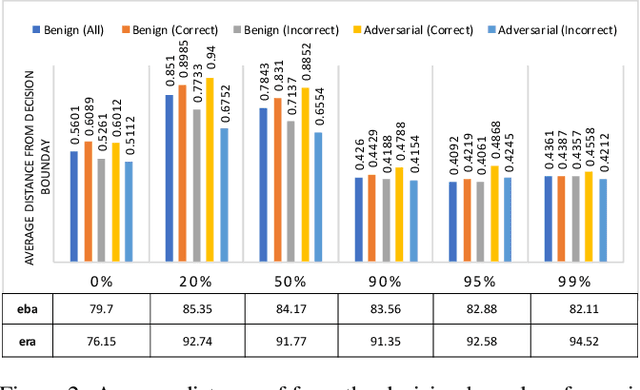
Abstract:The ability of Deep Neural Networks to approximate highly complex functions is the key to their success. This benefit, however, often comes at the cost of a large model size, which challenges their deployment in resource-constrained environments. To limit this issue, pruning techniques can introduce sparsity in the models, but at the cost of accuracy and adversarial robustness. This paper addresses these critical issues and introduces Deadwooding, a novel pruning technique that exploits a Lagrangian Dual method to encourage model sparsity while retaining accuracy and ensuring robustness. The resulting model is shown to significantly outperform the state-of-the-art studies in measures of robustness and accuracy.
 Add to Chrome
Add to Chrome Add to Firefox
Add to Firefox Add to Edge
Add to Edge